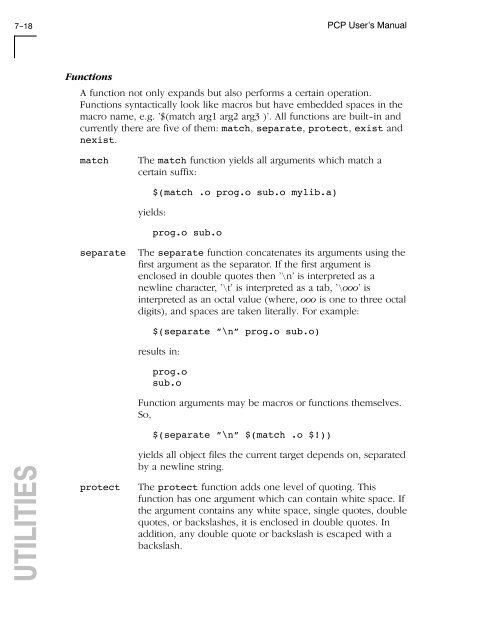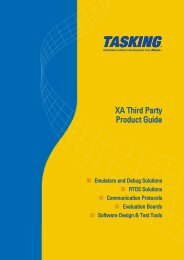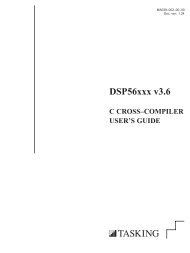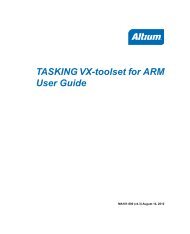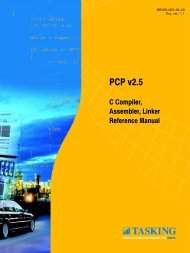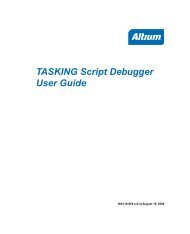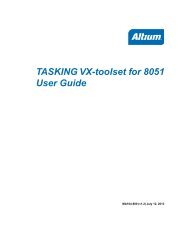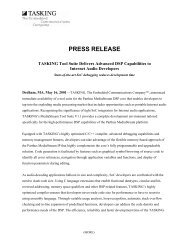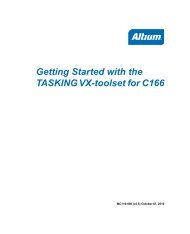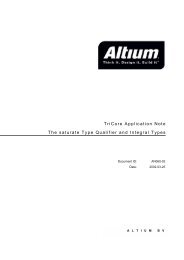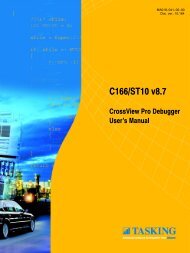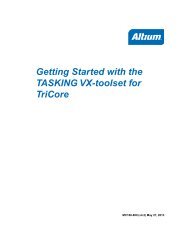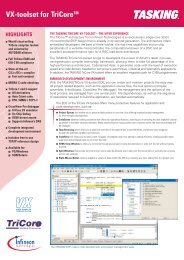Download - Tasking
Download - Tasking
Download - Tasking
You also want an ePaper? Increase the reach of your titles
YUMPU automatically turns print PDFs into web optimized ePapers that Google loves.
7−18<br />
PCP User’s Manual<br />
Functions<br />
A function not only expands but also performs a certain operation.<br />
Functions syntactically look like macros but have embedded spaces in the<br />
macro name, e.g. ’$(match arg1 arg2 arg3 )’. All functions are built−in and<br />
currently there are five of them: match, separate, protect, exist and<br />
nexist.<br />
match<br />
The match function yields all arguments which match a<br />
certain suffix:<br />
yields:<br />
$(match .o prog.o sub.o mylib.a)<br />
prog.o sub.o<br />
separate<br />
The separate function concatenates its arguments using the<br />
first argument as the separator. If the first argument is<br />
enclosed in double quotes then ’\n’ is interpreted as a<br />
newline character, ’\t’ is interpreted as a tab, ’\ooo’ is<br />
interpreted as an octal value (where, ooo is one to three octal<br />
digits), and spaces are taken literally. For example:<br />
$(separate "\n" prog.o sub.o)<br />
results in:<br />
prog.o<br />
sub.o<br />
Function arguments may be macros or functions themselves.<br />
So,<br />
$(separate "\n" $(match .o $!))<br />
UTILITIES<br />
protect<br />
yields all object files the current target depends on, separated<br />
by a newline string.<br />
The protect function adds one level of quoting. This<br />
function has one argument which can contain white space. If<br />
the argument contains any white space, single quotes, double<br />
quotes, or backslashes, it is enclosed in double quotes. In<br />
addition, any double quote or backslash is escaped with a<br />
backslash.


